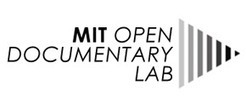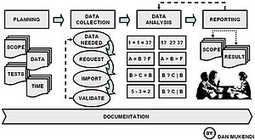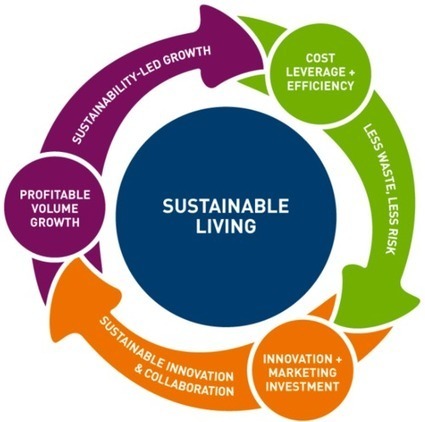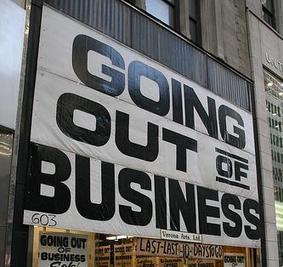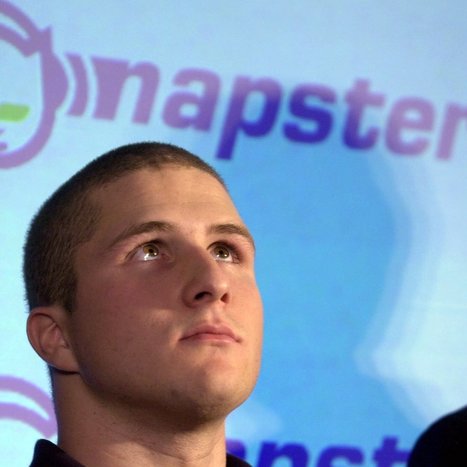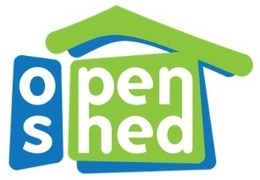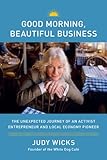 Your new post is loading...

|
Scooped by
jean lievens
December 7, 2013 2:03 PM
|
In the past 15 years, American print publishers have experienced a massive decline in advertising revenues. According to Statista, after peaking in 2000 newspaper ad spending has fallen more than 70% and reached a 50-year low point recently. According to Macquarie Capital, a similar trend can be seen for magazines. This could get worse in the coming years as marketers continue to shift resources to online advertising. Nowadays, Americans spend only 4.6% of their media time reading magazines and newspapers, while almost 20% of their media time is devoted to mobile devices.

|
Scooped by
jean lievens
November 26, 2013 4:55 PM
|
If you haven’t heard of Sharing Economy companies already, it’s about time you did. These up-and-coming businesses organize the sharing and reusing of goods or services by renting, loaning, swapping, and other forms of shared ownership.

|
Scooped by
jean lievens
November 26, 2013 1:27 AM
|
Having spent the past three years of my life in the Enterprise 2.0 / Collaborative software market, I remain struck by the industry’s continued lack of ability to define a compelling reason for enterprises to adopt new software applications, such as blogs, wikis, microblogs, etc. In the early days of the Enterprise 2.0 movement, much of this software was dismissed as the next wave of Knowledge Management, which was largely viewed as a zero ROI investment (or at least in the eyes of the venture capital community, it did not produce any break out, high return investments). Today, it is largely viewed as a necessary evil because the likes of Facebook and Twitter are impossible for the enterprise to ignore.

|
Scooped by
jean lievens
November 19, 2013 1:23 AM
|
I gave a talk last year to a group of TV executives gathered for an annual conference. From the Q&A after, it was clear that for them, the question wasn’t whether the internet was going to alter their business, but about the mode and tempo of that alteration. Against that background, though, they were worried about a much more practical matter: When, they asked, would online video generate enough money to cover their current costs?

|
Scooped by
jean lievens
November 18, 2013 6:51 AM
|
Thanks to disruptive technologies, an increasing number of wildly successful business models start with providing stuff for free.

|
Scooped by
jean lievens
November 15, 2013 1:34 AM
|
So you want to start a small product-design business? Here’s the good news. The playing field is more level than it’s ever been, and sophisticated social media and digital marketing tools allow for a more intimate connection to your consumer.

|
Scooped by
jean lievens
November 15, 2013 1:23 AM
|
Six years ago, Maggie Vail and Jesse von Doom launched CASH Music, a nonprofit with the express goal of building open-source tools to help musicians reach their audience—and make a living. Vail originally cut her teeth at the Kill Rock Stars label, while von Doom’s background was in web development. Both wanted to streamline the musician-to-audience experience. And so they made the CASH (which stands for Coalition of Artists and Stakeholders) platform open-source, allowing artists and labels to build networks in their own unique and flexible ways.

|
Scooped by
jean lievens
November 13, 2013 1:19 AM
|
An Open System is a modular construction that has been designed in such a way that its modules have precisely defined and publicly owned interfaces, where these interfaces allow independent suppliers to provide improved capability by providing innovative, plug-compatible modules.This modular structure, made from modules with open interfaces, is referred to as an Open Architecture.

|
Scooped by
jean lievens
November 11, 2013 5:55 AM
|
Anshu Sharma explains how Open Source Software, the kind of Software that’s freely available in Source Code form, generates lots of value but little revenue. He references the book Co-opetition by Harvard Business Professor Adam Brandenburger and Yale Management Professor Barry Nalebuff, which is about how to balance Cooperation and Competition in Business to gain the benefits of both. Open Source Software originates from the work of volunteers who want to share their work with others for the benefit of the community as a whole. Vendors like Red Hat and Novell build pre-configured Open Source solutions for businesses. Because of low barriers of entry in the Open Source Vendor game, prices are kept low. Ashnu notes that “And this is exactly what game theory predicts- in a market with low barriers to entry it is hard to charge premium prices and make profits over an extended period of time.” Companies like Google, Yahoo, and Facebook have been leveraging Open Source solutions to their own benefit. Even those who don’t benefit from Open Source directly benefit from the competitive pressure put on companies like Microsoft. Ashnu mentions that “the value added by open-source to the customers is not equal to the value added by open-source vendors” and that the low barriers of entry make it so that the potentially infinite pool of competitors divide the money going into Open Source solutions, so no single behemoth is reaping all the profit. He suggests that “You are much less likely to succeed by entering the game as a vendor. Your gains are much larger if you can leverage the low cost of open-source software to provide new services to the customer- consumer or businesses”.

|
Scooped by
jean lievens
November 11, 2013 5:24 AM
|
The OpenDocLab team is pleased to welcome Arnau Gifreu Castells as an OpenDocLab visiting research affiliate. A Professor of Communication Studies at the Universitat Oberta de Catalunya (UOC) and the Universitat de Vic (UVIC), Arnau is also a member of the i-Docs group. The Director of the UVIC_Lab, the Digital Content Laboratory at UVIC, he has also held research lecturer positions at Harvard University (Harvard Metalab) and York University (Future Cinema Lab).

|
Scooped by
jean lievens
November 11, 2013 5:22 AM
|
Innovation is the art of bringing together innovation culture rules and a business model.

|
Scooped by
jean lievens
November 9, 2013 4:38 AM
|
Unilever is working toward a new business model that “...enables responsible, equitable growth that is decoupled from environmental impacts.”

|
Scooped by
jean lievens
November 6, 2013 1:48 PM
|
In a remarkably short time the internet has changed our world. Its impact has been more pervasive than that of electricity. The digital revolution has often been called the 3rd industrial revolution following previous ones driven by steam and electricity. While these earlier shifts were about creating efficiency and improvements in how products were manufactured, the ICT revolution is about a transformation of what is being processed. It’s redefining critical business assets, creating new economic models and transforming business in the process.
|

|
Scooped by
jean lievens
November 29, 2013 1:23 AM
|
Don’t want to end up like Blockbuster or Borders? Than maybe it’s time to reinvent your business model.

|
Scooped by
jean lievens
November 26, 2013 1:28 AM
|
We round up the highlights from a recent live chat exploring how business, consumers and design students can help to shift our patterns of fashion consumption

|
Scooped by
jean lievens
November 26, 2013 12:36 AM
|
While at the Council of Europe in 2011-2012 I directed a project called Edgeryders. The idea was this: use the Internet to let a policy community emerge by self-selection around an issue, then deploy that community as an engine of expert advice on the issue at the hand. We started to call this model open consulting. Its beauty is that: - See more at:

|
Scooped by
jean lievens
November 18, 2013 6:53 AM
|
A service lets travelers leave their car at the airport — and rent it out while they're away.

|
Scooped by
jean lievens
November 15, 2013 1:34 AM
|
Corporate use of social technologies is mainstream, though the pace of adoption has slowed. But companies can still take advantage of the untapped potential these tools have to transform their organizations and create significant value.

|
Scooped by
jean lievens
November 15, 2013 1:32 AM
|
Join a panel of experts on Thursday 14 November, 1-2pm GMT for a live chat on mainstreaming alternative business models and creating consumer demand for sustainable fashion (Can't make today's #fashion live chat at 1pm GMT?

|
Scooped by
jean lievens
November 14, 2013 6:31 PM
|

|
Scooped by
jean lievens
November 12, 2013 1:10 AM
|
Napster upended the music industry but didn't survive. New businesses are trying to avoid that fate. (We've come a long way since Napster!

|
Scooped by
jean lievens
November 11, 2013 5:25 AM
|
We met with Lisa Fox In Hyde Park (Sydney) on a beautiful Thursday afternoon. She is co-founder at Open Shed, an online sharing platform that opened about two years ago.

|
Scooped by
jean lievens
November 11, 2013 5:23 AM
|
One of the most interesting presentation I heard at the recent EADTU Conference in Paris was Variable cost minimisation (VCM) business models in higher education by Yoram Kalman of the Open University Israel.

|
Scooped by
jean lievens
November 11, 2013 4:52 AM
|
It's not often that someone stumbles into entrepreneurship and ends up reviving a community and starting a national economic-reform movement. But that's what happened when, in 1983, Judy Wicks founded the White Dog Café on the first floor of her house on a row of Victorian brownstones in West Philadelphia. After helping to save her block from demolition, Judy grew what began as a tiny muffin shop into a 200-seat restaurant-one of the first to feature local, organic, and humane food. The restaurant blossomed into a regional hub for community, and a national powerhouse for modeling socially responsible business. Good Morning, Beautiful Business is a memoir about the evolution of an entrepreneur who would not only change her neighborhood, but would also change her world-helping communities far and wide create local living economies that value people and place as much as commerce and that make communities not just interesting and diverse and prosperous, but also resilient. Wicks recounts a girlhood coming of age in the sixties, a stint working in an Alaska Eskimo village in the seventies, her experience cofounding the first Free People store, her accidental entry into the world of restauranteering, the emergence of the celebrated White Dog Café, and her eventual role as an international leader and speaker in the local-living-economies movement. Her memoir traces the roots of her career - exploring what it takes to marry social change and commerce, and do business differently. Passionate, fun, and inspirational, Good Morning, Beautiful Business explores the way women, and men, can follow both mind and heart, do what's right, and do well by doing good.

|
Scooped by
jean lievens
November 9, 2013 2:24 AM
|
"Initial studies into the effect of open access monographs suggest little to no impact on sales, but an increase in discoverability and online usage.
|
 Your new post is loading...
Your new post is loading...















